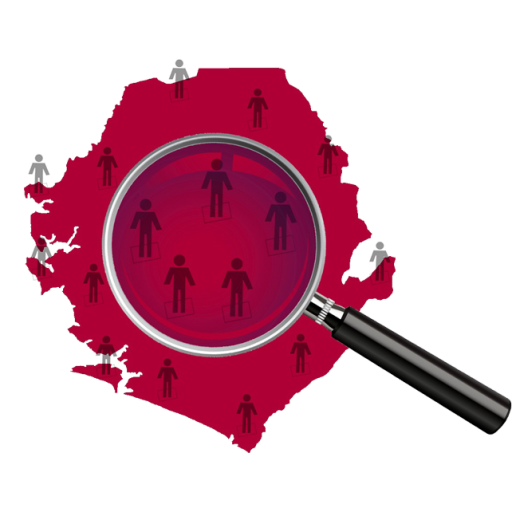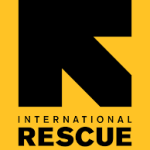Mental Health and Psychosocial Support (MHPSS) Officer
Job Overview
-
Date PostedOctober 17, 2024
-
Location
-
Expiration dateOctober 30, 2024
-
Experience2 Years
-
QualificationBachelor Degree
-
OrganizationConcern Worldwide
-
Required LanguagesEnglish, Krio
Job Description
Concern Worldwide is a nongovernmental, international, humanitarian organisation dedicated to the reduction of suffering and working towards the ultimate elimination of extreme poverty in the world’s poorest countries. Concern Worldwide’s integrated programming approach aims to tackle all dimensions of poverty, focusing on the overlapping areas of health, education and livelihoods while maintaining our response to emergencies. Concern fully integrates equality in all its work, with emphasis on a gender transformative approach. Concern Worldwide has been operational in Sierra Leone since 1996. . Concern currently operates in the Districts of Western Area Urban (Freetown), Western Area Rural, Tonkolili, Kambia and Port Loko as well as remotely in Koinadugu, Falaba, Bombali and Karene.
On this note, Concern would like to invite well experienced and professional applicants for the under mentioned role:
| Job Title | Mental Health and Psychosocial Support (MHPSS) Officer |
| Project | Saving Lives Phase 3 |
| Reports to: | Consortium Director |
| Direct reports: | N/A |
| Liaises with: |
|
| Job Location: | Freetown Sierra Leone with frequent visits to consortium members’ offices and programme areas. |
| Contract Details: | 4 YRS |
| Job Purpose: | About the Program:
Saving Lives in Sierra Leone Phase 3” (SLiSL3) is an FCDO funded Health Systems Strengthening programme, building upon its predecessor programmes, also funded by FCDO. The programme aims to achieve fewer preventable deaths and reduced morbidity among women, girls and children by improving the quality, availability, equity and accessibility of reproductive, maternal, neonatal, child and adolescent health and nutrition (RMNCAH&N) services. A key intended outcome is improved Universal Health Coverage (UHC). The programme was initiated in December 2023 and will run until December 2028. Role Overview: The Team Lead (Consortium Director) will be responsible and accountable for the overall management and oversight of the programme including: overseeing the contract management and implementation, risk management and financial accountability, donor reporting and liaison, external representation, relationship management with downstream partners and government counterparts, and ensuring compliance with Concern and donor’s policies and procedures. You will be responsible to provide direction and support to the team, and technical leadership to ensure high quality programming to achieve project results. |
| Main duties &
Responsibilities: |
Specific Roles and Responsibilities
|
| Person specification: | Essential
Desirable:
|
| Emergency response | Concern is committed to responding to emergencies efficiently and effectively in order to help affected people meet their basic needs, alleviate suffering and maintain their dignity. To this end, when emergencies strike and Sierra Leone Programme is to respond, all staff are required to actively participate in the response, regardless of location and contribute to the efforts aimed at achieving the humanitarian objective of the organization |
| Gender Equality | Concern Worldwide in Sierra Leone recognizes that the establishment of equality of opportunity between men and women is fundamental to both the achievement of fairness and to poverty elimination.
Therefore, each staff member of Concern is expected to be sensitive to equality issues in their relationships with colleagues and in their work and to participate in implementation of gender mainstreaming plans, both at the workplace and in programmes. |
| Safeguarding at Concern: Code of Conduct and its Associated Policies
Concern has an organisational Code of Conduct (CCoC) with three Associated Policies; the Programme Participant Protection Policy (P4), the Child Safeguarding Policy and the Anti-Trafficking in Persons Policy. These have been developed to ensure the maximum protection of programme participants from exploitation, and to clarify the responsibilities of Concern staff, consultants, visitors to the programme and partner organisation, and the standards of behaviour expected of them. In this context, staff have a responsibility to the organisation to strive for, and maintain, the highest standards in the day-to-day conduct in their workplace in accordance with Concern’s core values and mission. Any candidate offered a job with Concern Worldwide will be expected to sign the Concern Staff Code of Conduct and Associated Policies as an appendix to their contract of employment. By signing the Concern Code of Conduct, candidates acknowledge that they have understood the content of both the Concern Code of Conduct and the Associated Policies and agree to conduct themselves in accordance with the provisions of these policies. Additionally, Concern is committed to the safeguarding and protection of vulnerable adults and children in our work. We will do everything possible to ensure that only those who are suitable to work or volunteer with vulnerable adults and children are recruited by us for such roles. Subsequently, working or volunteering with Concern is subject to a range of vetting checks, including criminal background checking. |
|
HOW TO APPLY
Interested candidates should apply with:
- An application letter clearly justifying how you meet the selection criteria
- Recent Curriculum Vitae including names and full contact addresses of three (3) referees, one of whom must be their current or most recent employer.
- Candidates must state the position of each referee and his/her relationship to the candidate.
- A copy of a valid labour card must be attached to ALL applications (written or electronic)
- Police Clearance will be required from the successful candidate
Applications should be sent either through email or by hard copy to the following addresses.
You can send through email to info.sl@concern.net OR deliver in Hard copy to the below locations
HR Department, Concern Worldwide, 20 Old Railway Line – Signal Hill, Freetown
HR Department, Concern Worldwide, 156A Freetown Highway, Mile 91, Tonkolili.
HR Department, 24 Upper Kamara Lane, Back of EDSA Substation, Port Loko
Please mark your application as per the references stated in position above
(By email please put the reference in the SUBJECT heading).
Closing date for receipt of applications for the above vacancy is 17.00 on Tuesday 29thOctober 2024
Only short listed candidates will be contacted.
PLEASE NOTE THAT A COPY OF THE APPLICATION LETTER (written or typed) MUST BE SENT TO THE NGO DESK OFFICER, MINISTRY OF LABOUR & SOCIAL, NEW ENGLAND OR EMAILED TO Email: employmentdesk71@gmail.com
“FEMALE CANDIDATES ARE STRONGLY ENCOURAGED TO APPLY”
![]()





